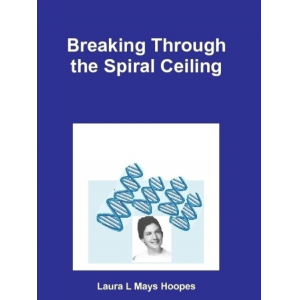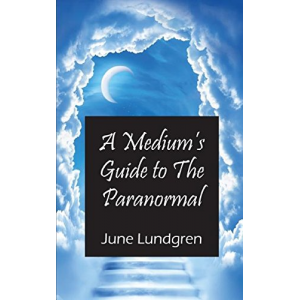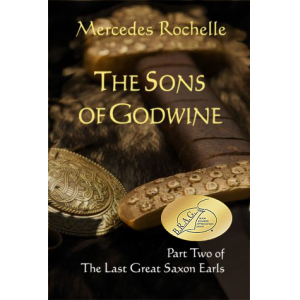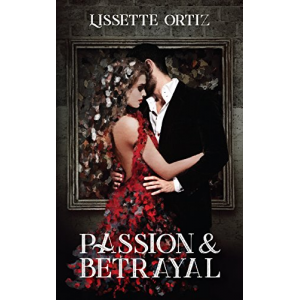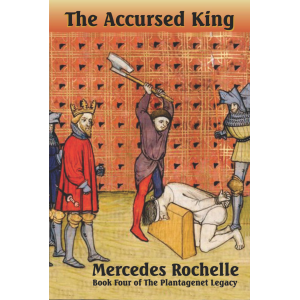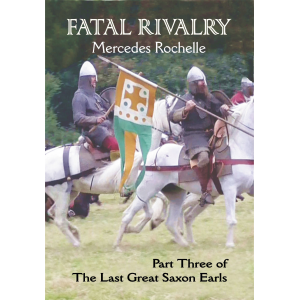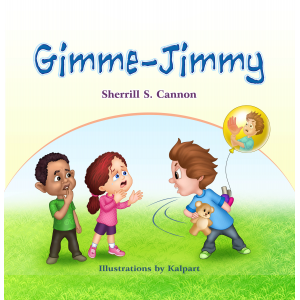Publishers Weekly
🔗 http://www.publishersweekly.com/article/CA6686236.html- Author
- Book
- Story behind the book
- Media Links
- Reviews
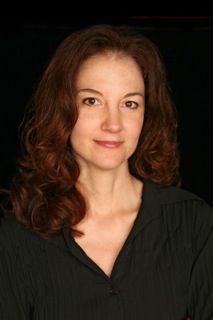
Kristin Bair OKeeffe
About
Kristin Bair O'Keeffe's debut novel Thirsty(Swallow Press, Oct 2009) tells the story of one woman’s unusualjourney through an abusive marriage, set against the backdrop of aPittsburgh steel community at the turn of the twentieth century. Herwork has been published in the Pittsburgh Post-Gazette, Poets & Writers Magazine, San Diego Family Magazine, The Baltimore Review, The Gettysburg Review,and many other publications. She has an MFA in Creative Writing fromColumbia College Chicago and has been teaching writing for almostfifteen years.
Kristin lives in Shanghai, China, with her husband anddaughter. If you’d like to learn more about Thirsty, visit www.thirstythenovel.com and www.kristinbairokeeffeblog.com.
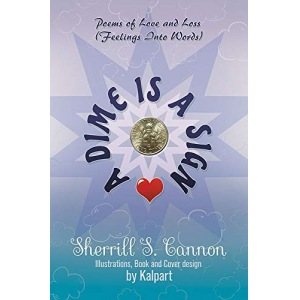
A Dime Is a Sign: Poems of Love and Loss (Feelings Into Words)
Description
<p>A psychic medium once said that if you find a random dime, it is a sign that someone that you have loved and lost is thinking of you.</p><p><strong>A Dime is a Sign Through Time</strong></p><p><em>If you find a dime, </em></p><p><em>You will know that I'm</em></p><p><em>Sending thoughts of love</em></p><p><em>Through the veil of time.</em></p><p> </p><p><em>Ten cents with a silver shine, </em></p><p><em>A sense sent you to help remind</em></p><p><em>That someone who left you behind</em></p><p><em>Is always living in your mind.</em></p><p> </p><p><em>Sending love and vibes, </em></p><p><em>Felt as psychic sighs ...</em></p><p><em>The ones that you miss, </em></p><p><em>Send you a kiss ...</em></p><p> </p><p>Sherrill S. Cannon's second book of poetry contains messages written through the years in poetic form that put feelings into words. As a teacher, many of her poems helped counsel troubled teens and friends.</p><p>There are three sections in the book: Heads, Spinning, and Tails ... (Love & Loss: Coin Toss?). The variety of lyrical poetry forms include free verse, blank verse, haiku, and sonnets, while some are just playing with words!</p><p>Hopefully, this is also a book of healing.</p><p> </p><p> </p><p>Sherrill S. Cannon, a former teacher and grandmother of ten, is the author of nine acclaimed rhymed children's books, plus a recent award-winning book of poetry <em>(A Penny for Your Thoughts), </em>which together have received 63 national and international book awards since 2011. She also wrote seven published plays for elementary school children that have been performed in over 25 countries. Most of her children's books emphasize consideration for others. Married for 58 years, she and her spouse are now retired, live in Pennsylvania, and travel in their RV from coast to coast, spending time with their children and grandchildren, and sharing her books along the way!</p><p> </p>
Story Behind The Book
As a writer, I’m deeply inspired by place. Certain towns, geographic nooks and crannies, countries…places where as soon as I step a single toe for the very first time, I feel something. A kind of magical, mystical roaring in my soul. A roaring so insistent that once it starts, the only way for me to quiet it is to write about the place that triggered it. Are there other things in the world that inspire me? Of course, but not in the big, knock-you-silly, bowl-you-over kind of way that a place does. China—where I’ve been living for the last four years—gets my soul roaring. New Mexico—especially the Sangre de Cristo Mountains where the bears ramble around the woods like great huffing boxes of muscle—gets my soul roaring. And Pittsburgh—my hometown and the setting of my debut novel Thirsty—well, heck yeah, that city and its steel-making history gets my soul roaring, too. So much so that in 1987 when I was an undergraduate at Indiana University in Bloomington, Indiana, I wrote a poem called “Crumbling Steeples” about the crash of the steel industry, Pittsburgh, and my grandfather. Once the poem got published, I figured I was done telling stories about steel in Pittsburgh. Well, obviously I was not. Because when Klara Bozic—the main character in Thirsty—started floating around in my head in the early 1990s, I quickly discovered that she lived in a small steel community in Pittsburgh. Go figure. The good thing was that I was already familiar with the geography of Pittsburgh. After all, I’d grown up there. My maternal grandparents lived in Clairton, one of Pittsburgh’s most dynamic steel towns, and my grandfather worked in a steel mill. As a kid in the late 1960s and early 1970s, I spent a lot of time at my grandparents’ house, and from their back porch, I could see the smokestacks of the mills puffing away, shooting steam and flames into the polluted, marbled sky. The air was gritty and stunk like rotten eggs, and when my sisters and I walked to the end of the road, we could watch the barges pulling steel up the Monongahela River. So I set to work, and as I wrote Thirsty, I used the geography of Pittsburgh to mirror the emotional challenges Klara faces in her marriage to Drago: the wending Monongahela River, the rocky outcrops, the sheer hillsides. If you’ve ever visited the Pittsburgh area, you know that it has many very steep, very long hills. (And I mean, VERY steep, VERY long.) Klara spends a good bit of time ascending and descending these hills; she spends a good bit of time doing the same in her marriage. I’m not sure I was conscious of all this while writing the first or second draft of the book, but I sure was by the time I reached the serious rewriting stage. In fact, when I was working on the scene in which Klara goes into town to get her hair cut, I made sure she took the steepest, longest route…because this was a significant decision for her. She couldn’t get there easily either emotionally or physically. By the time I finished writing Thirsty, I was satisfied that the physical geography and the emotional geography were well matched. I was also exhausted…all those hills are tiring.
Media Links
Reviews
<p>“Kristin Bair O’Keeffe’s <em><strong><cite>Thirsty</cite></strong></em> has all the power of a small miracle. The mysteries of nineteenth century, small town factory life—the sudden appearance of thousands of butterflies, an extraordinary affliction of hiccups, a talking bird—brilliantly transcend the accumulation of everyday cruelties. A remarkably good read.“<br /><strong><strong>—Joe Meno, author of <em><cite>The Great Perhaps</cite></em> and <em><cite>Hairstyles of the Damned</cite></em></strong></strong></p> <p>“<em><strong><cite>Thirsty</cite></strong></em> is a beautiful tale, vivid and gently told. It is the story of one woman’s incredible strength of spirit, and a reminder of the foundation contemporary America is built upon—one of unspeakable cruelty, and Job-like suffering, as well as generosity and unbreakable hope.“<br /><strong><strong>—Don De Grazia, author of <em><cite>American Skin</cite></em></strong></strong></p> <p>“<em><strong><cite>Thirsty</cite></strong></em> is a rare and special type of book—an intelligent page turner, a forward–thinking historical drama, a picture painted with equal shades of light and darkness. The language is consistently surprising and often intensely beautiful, the characters rich with nuance.”<br /><strong>—David Crouse, author of <em><cite>The Man Back There</cite></em> and <em><cite>Copy Cats</cite></em></strong></p> <p>“A debut novel that is artfully told and full of literary surprises, Kristin Bair O’Keeffe’s <em><strong><cite>Thirsty</cite></strong></em> tackles oppression at the turn of the twentieth century without wincing... Stark, poetic, and brimming with hope, <em><strong><cite>Thirsty</cite></strong></em> glimpses the uncomfortable truth about what it means to house a battered heart and live a life shackled by seemingly insurmountable circumstances.”<br /><strong><strong>—Christina Katz, author of <em><cite>Writer Mama</cite></em> and <em><cite>Get Known before the Book Deal</cite></em></strong></strong></p><p>“With exquisite language and unflinching storytelling Kristin Bair O’Keeffe opens wide a world of immigrant struggle and the heartbreaking compromises our ancestral mothers faced. In turns brutal and hopeful, <em><strong>Thirsty</strong></em> is a beautiful account of an ordinary woman in the midst of extraordinary circumstances. It is a reminder that small miracles still happen.”<br /><strong><strong>—Heather Sharfeddin, author of three novels, including <em><cite>Blackbelly </cite></em><cite>and</cite><em><cite></cite></em><cite></cite><em><cite>Windless Summer</cite></em> </strong></strong></p>
